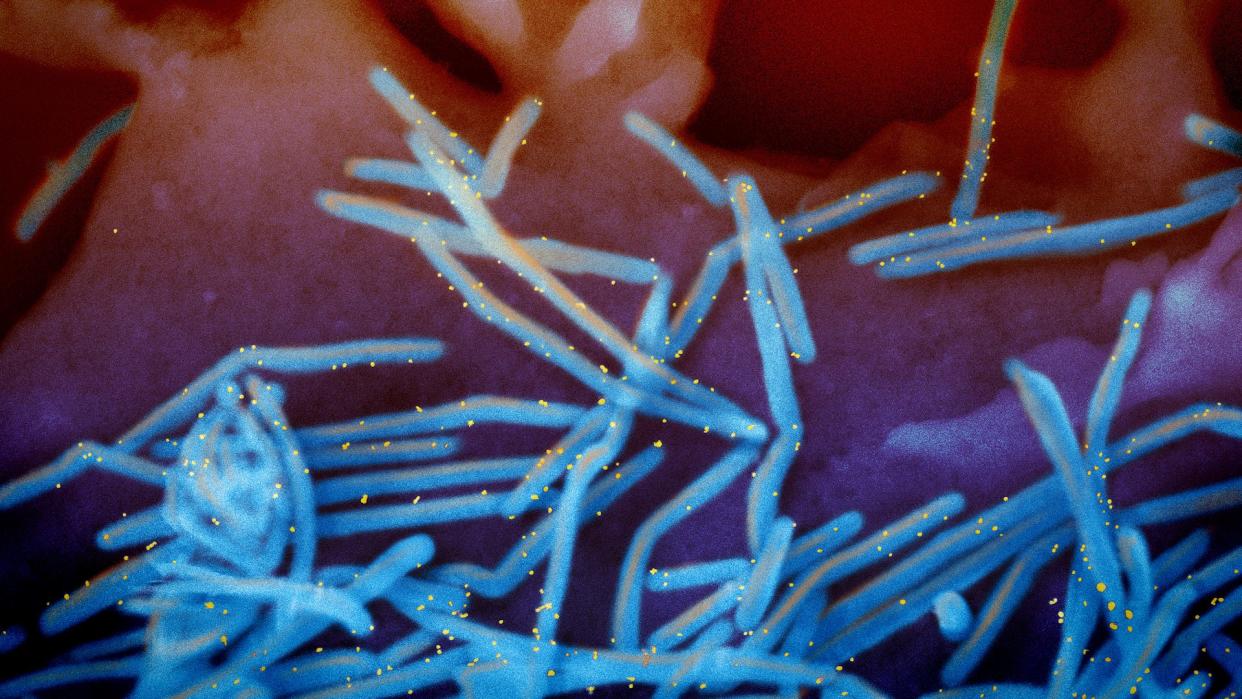Two children in Wisconsin have died from RSV this season. Here's how to protect yourself.

Update: DHS has confirmed a second RSV death of a child.
Wisconsin Department of Health Services has confirmed the deaths of two children from the highly contagious respiratory illness known as Respiratory Syncytial Virus (RSV). It marks the first pediatric deaths from RSV this season.
One child was reported dead from RSV in southeastern Wisconsin, and the second was from northeastern part of the state, DHS said. Many more young children are hospitalized with the respiratory virus.
RSV infections are most virulent in fall and winter, and among infants and children, it is the most common cause of bronchitis, croup, ear infections and pneumonia, according to DHS' respiratory viruses' dashboard.
In the last three weeks, four deaths were the result of RSV, according to DHS' Respiratory Virus Surveillance Report. Of the 8,321 Wisconsinites tested for RSV, 1,092 of people, or 13%, have tested positive. Children between 0 and 4 have by far the highest rates of hospitalization among every age group, according to the same report.
RSV is among the respiratory illnesses circulating at significant levels throughout Wisconsin. Influenza is also spiking among school-age children. Pneumonia and COVID-19 have killed 179 and 116 Wisconsinites, respectively, in the last three weeks.
“Respiratory illness cases are on the rise throughout the state, and it is important to take steps to protect ourselves and our loved ones, especially before the holidays," said DHS Respiratory Diseases Epidemiologist Tom Haupt in a press release Friday.
DHS encourages all Wisconsinites, but especially children six months and older; older adults 60 and over; and people who are pregnant, to get vaccinated against respiratory illnesses as soon as possible. RSV, flu and COVID-19 vaccines are safe, effective and prevent or reduce symptoms of respiratory illness infections.
Those three groups should contact their health care provider to determine the best path forward for respiratory illness prevention. DHS recommends the following prevention treatments for young children:
An RSV vaccine (Abrysvo) for pregnant people between 32 weeks and 36 weeks of pregnancy during RSV season. The vaccine provides antibodies for newborns until they are 6 months old.
A monoclonal antibody shot (nirsevimab) for children younger than 8 months and born during, or entering, the RSV season. Nirsevimab is also available for children between 8 and 19 months entering their second season of RSV and who are at an increased risk of severe RSV disease.
There is currently a shortage of nirsevimab this season, DHS notes, but confirmed there is enough of a supply for pregnant people.
Young children in Wisconsin have the lowest vaccination rates in the state when it comes to COVID-19 and some of the lowest rates of the influenza vaccinations. As of Dec. 22, 2023, just 3.1% of children aged 0 to 4 and 3.7% of children aged 5 to 17 have been vaccinated against COVID-19. Flu vaccinations fair much better, by comparison, with 28.8% of children aged 0 to 4 and 21.7% of children aged 5 to 17.
DHS was unable to provide vaccination rates thus far for RSV.
Additionally DHS strongly encourages Wisconsinites to be leaders in good prevention practices, including washing your hands for 20 seconds; not touching your nose, eyes or mouth; staying home and away from others if you feel sick; avoiding others who are sick or who have symptoms of respiratory illness; covering your nose and mouth when you cough or sneeze (and encouraging your children to do the same); and wearing a high-quality mask around others to prevent the spread of respiratory illnesses.
RELATED: Influenza infections are rising in Wisconsin. Which states have the highest flu rates?
"Respiratory disease vaccines are safe and effective, and we urge all eligible Wisconsinites to get their shots as soon as possible," Haupt said in the press release. "Taking steps to prevent respiratory illnesses helps keep us all healthy and can prevent serious illness, hospitalization, and death during respiratory illness season.”
Wisconsinites can find locations offering RSV, flu and COVID-19 vaccine by visiting vaccines.gov or calling 211 or 877-947-2211.
Natalie Eilbert covers mental health issues for USA TODAY NETWORK-Wisconsin. She welcomes story tips and feedback. You can reach her at neilbert@gannett.com or view her Twitter profile at @natalie_eilbert. If you or someone you know is dealing with suicidal thoughts, call the National Suicide Prevention Lifeline at 988 or text "Hopeline" to the National Crisis Text Line at 741-741.
This article originally appeared on Green Bay Press-Gazette: Two Wisconsin children have died from RSV. DHS urges vaccinations.

